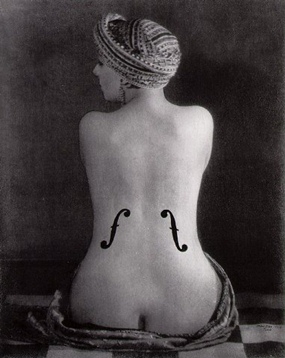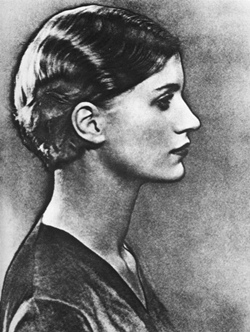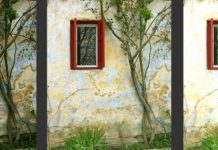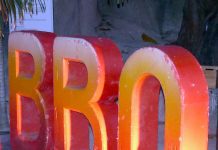Many countries have found themselves with the title of “raunchy”, and in fact, Pattaya gets its fair swag of sanctimonious finger-pointers, but Pattaya’s sexiness is commercial, not something in the DNA.
Paris in the early 1920’s had the DNA and was one of the raunchiest cities in the world. What went on in Paris makes Pattaya today look like a kindergarten. It was a city of excesses in all ways, and definitely sexually. “Free love” was not invented by the flower power groups in the USA. Paris had it all, and then some, almost half a century earlier.
 Violon d’Ingres.
Violon d’Ingres.
It also had a flourishing artistic commune (another concept the Americans did not invent), and two of their members were Emmanuel Radnitsky (who changed his name to Man Ray when he was 15 years old) and Kiki of Montparnasse a truly free spirit who once said, “All I need is an onion, a bit of bread, and a bottle of red; and I will always find somebody to offer me that.” Both of them have left their marks on the history of photography (as well as their marks upon each other).
Man Ray (1890-1976) arrived in Paris in 1921, drawn to a city that attracted writers, musicians, artists, exiles, free-thinkers and Americans. America was then, as it still is in many ways, the bastion of nudity (Penthouse et al) and also prudity. An amazing contradiction!
As one means of supporting himself abroad Man Ray, who was initially an artist, took photographic portraits, and he quickly emerged as the premier photographer in Paris at the time. Man Ray had quickly turned to the camera as the fastest way to do a portrait. “If it is a portrait that interests me, a face, or a nude, I will use my camera.
It is quicker than making a drawing or a painting (and) to express what I feel, I use the medium best suited to express that idea, which is also always the most economical one.” His reputation as a master of the photographic portrait was unsurpassed, not only for his technical prowess but also for his innovative poses and imaginative approach. He photographed virtually all the artistic literati and personalities of Paris in the ‘20s including Picasso, Matisse, Virginia Woolf, T.S. Eliot, James Joyce and Ernest Hemingway.
It was during this time that he met Kiki of Montparnasse. Illegitimate and poor, her early years were marked by her ability to fend for herself, by whatever means were needed (chrome poles and Pattaya come to mind).
 Lee Miller.
Lee Miller.
By the time she was a teenager she was working as a ‘model’, and soon came into contact with major artists and writers of the time and she met and befriended the likes of Hemingway, Cocteau, and Man Ray – the latter who also became her lover for six years. Her collaborations with Man Ray produced some of Surrealism’s most iconic images, including Noire et blanche and Le Violon d’Ingres, where for this photograph Man Ray painted the f cut-outs on her back, seeing the relationship between the female form and the shape of the violin.
At the height of her fame in 1929, Kiki created a sensation when she wrote her memoirs, which were promptly banned in America (the prudity factor again). Armed with the most endearing charms, creative talents, and a keen intelligence, Kiki revealed in her recollections the life of a fiercely modern individual who was a truly emancipated and imaginative woman.
Man Ray’s imagination also led him to produce other non-standard ways of producing a photograph, including placing objects on photographic paper and then exposing the paper to light and processing from there, and also solarized prints, such as the famous one of his assistant Lee Miller taken in 1930. This effect is produced by a re-exposure of the negative during processing, which reverses the blacks and whites. According to Miss Miller, this occurred when a mouse ran over her foot during the development and the light was turned on and off to see what it was!
We do not have such unbridled artistic expression these days, despite iPads and the social media!




